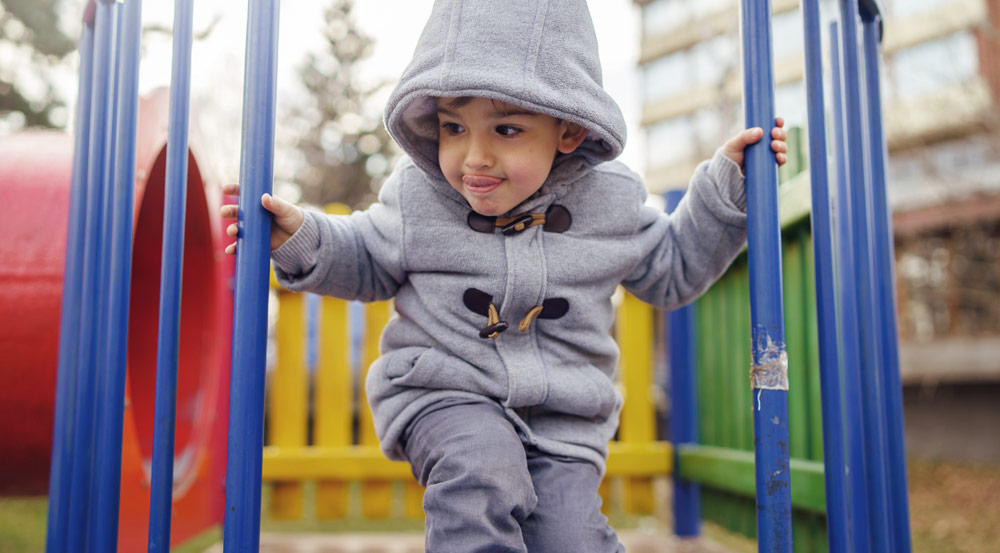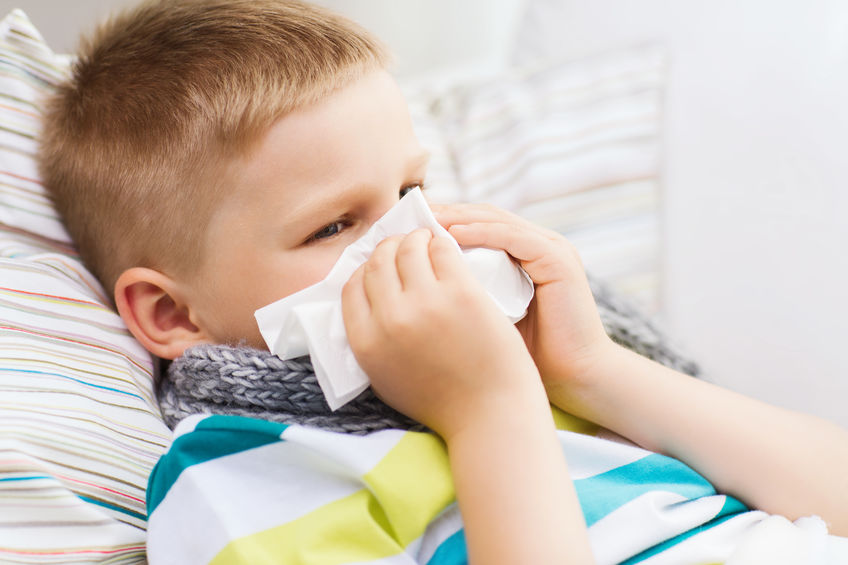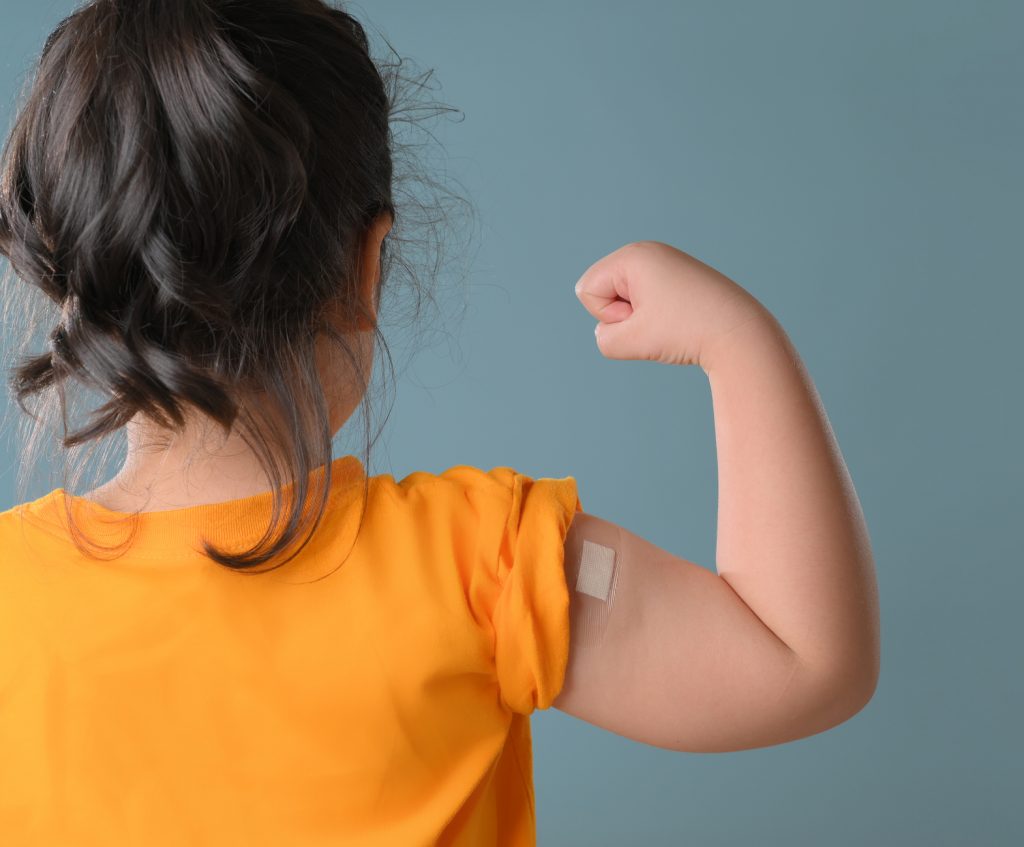Here in Nebraska — and in many states across the US — certain stay-at-home orders are slowly becoming relaxed. Restaurants are starting to offer in-restaurant dining, and barbershops and salons are finally giving people a break from their new shaggy ‘dos. Finally, it seems like there’s some light at the end of the tunnel.
But business isn’t quite as usual. Most businesses have strict rules, regulations, and restrictions that they’re required to follow in order to keep their customers safe.
And when it comes to keeping your child safe — especially if they have a chronic medical condition — it’s important to know exactly what to expect and how to further protect your child.
The Back to Business Basics
Nebraska may be opening back up, but that doesn’t mean it’s safe for everyone to go out.
If you or your child are considered high-risk, you have symptoms of COVID-19, or you have been in close contact with someone with the virus, the best thing to do is continue to stay home. Remember that you can still go on socially distanced walks outside, order in take-out, and stay social through online services and apps.
Dining Out (Finally!)
(NOTE: Nebraska is following a color-coded reopening plan that is tied to coronavirus-related hospitalizations. There are five phases — red, orange, yellow, green, and blue — and each phase has its own restrictions. As of December 12, every county in Nebraska is in the yellow zone. The following information pertains specifically to yellow zone regulations and restrictions).
Restaurants are open for dine-in service at 100% capacity.
If you go to a restaurant, here’s what you can expect:
- You can only have up to eight people in your dining party, even if there are more than eight of you in your household. That doesn’t mean you can’t go in together — you will just have to split into multiple tables.
- You must be seated on premises unless you are placing an order, using the restroom, or playing games.
- There can’t be any congretaging around games.
- More restaurants are using touchless payment options or pay-at-table options, and using digital or single-use menus, to reduce the risk of spreading germs.
Also, while you shouldn’t let your guard down (please still sanitize and wear masks when you’re not eating!), rest assured that restaurants are taking extra precautions to protect customers. Employees are required to wear face coverings, disinfect tables and chairs after anyone has used them, and disinfect high-touch surfaces every 4 hours.
Pro-tip: Call the restaurant ahead of time. They may have new hours or waitlist policies.
Travel: Hit the Road With Caution
Whether you have planned a weekend at Grandma’s or a vacation to Disney World, telling your child that you have to postpone the trip can be heartbreaking. But even though certain restrictions have been relaxed, it’s unfortunately not the time to resume non-essential travel — especially if it’s out of state.
Many cases of COVID-19 have been linked to out-of-state travel. In fact, at the end of March, it was estimated that more than 80% of confirmed cases in Nebraska were related to travel or close contacts of people who had recently traveled.
There are a few times when you and your child might have to do a little traveling. For example, if you live far from the hospital and your child needs medical care, you may need to travel, or even cross state lines. Please do not hold off on getting your child essential care, even if it means making a trip.
If you do have to travel, follow these recommendations:
- By car: Make as few stops as possible. Pack plenty of snacks for the trip. If you do stop at a gas station or use a public restroom, wipe down all surfaces and wash your hands thoroughly afterwards.
- By train or bus: Try to sit or stand more than 6 feet apart from others and use a face covering at all times.
- By plane: Social distancing is a little trickier if it’s a crowded flight, so pay extra attention to keeping your face covered, disinfecting surfaces, and sanitizing your hands frequently. If your child brings along a comfort item, like a stuffed animal or blanket, put it in the laundry right after the flight.
- At a hotel: If possible, leave early in the day to avoid stopping for the night. However, it’s important to get a good night’s sleep when you’re on the road, so don’t push through if you’re tired. If you have to stay at a hotel, bring your own disinfectants and wipe down all surfaces, like doorknobs and light switches.
After traveling out of state (unless you’re a commuter), self-quarantine for 14 days and carefully monitor yourself and your child for any symptoms.
Exercise and the Great Outdoors
Exercise is always key for staying healthy, and it’s even more so now that your child is out of school and may want to just stay in playing video games all day. And now that beaches and parks are opening back up, it can be tempting to think that going outdoors for exercise is totally safe.
But is it?
The short answer is, yes! Getting that fresh air and sunshine can boost your mood, decrease stress and anxiety, and even help control blood pressure. The longer answer is yes, but only for certain activities.
Make sure your child stays at least 6 feet away from others at all times and that they don’t play any sports with shared equipment, like soccer balls or basketballs. Many parks are open, but take a look before letting your child play there. If it’s crowded and might be difficult to social distance, the park is probably not the place to be.
Also, even if playgrounds are open, it’s best to avoid them. Germs can easily linger on monkey bars and slides. Instead, try outdoor activities like:
- Running or walking
- Playing a sport with a sibling they live with
- Flying a kite
- Jumping rope
- Playing hopscotch
- Using sidewalk chalk
Everyday Activities
If your family is now at home more than ever before, you may be cooking more often and going through household supplies quickly. On top of that, you’re probably taking on the role of home school teacher and desperately trying to come up with new ways to keep the little ones entertained.
This is your new “everyday” — so what do those activities look like now?
Playdates: With many kids doing remote learning or spending less time at school, it may be tempting to give them extra playtime with their friends. But kids need to socially distance, too, so playdates and slumber parties need to wait.
Grocery Shopping: Have a shopping list so that you don’t have to spend extra time in the store browsing, and wait to go down aisles if you won’t be able to stay 6 feet away from another shopper.
If possible, go to the store by yourself — but don’t do so at the expense of leaving your child in the car or having them stay home alone if they don’t do that yet. If you have to bring your child into the store, keep their face covered.
Places of worship: Places of worship (churches, synagogues, mosques, etc.) have the green light to resume services, weddings, and funerals.
- There are no restrictions for services, but it is still recommended to follow best practice guidelines, such as having different households remain 6 feet apart from one another.
- At weddings and funerals, no more than 8 members of a household can be seated at one table. Activities like dancing, where people are away from their tables, should be limited. It is recommended that these events follow best practice guidelines.
Whether you start going out more or remain at home, remember to keep up with COVID-19 prevention. Practice social distancing (staying 6 feet apart from others), wear face coverings in public, wash your hands frequently, disinfect high-touch surfaces, and stay home if you have any symptoms.
Keep checking back for updates on staying safe as new businesses open back up. If you have any questions about COVID-19, call our dedicated COVID-19 help line at 402-955-3200.



